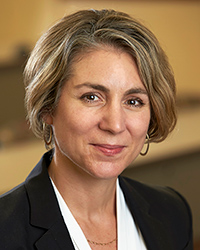Eve Hanan

What is the most significant issue facing your field and how should it be addressed?
The problem in my field is that there are too many areas that need to change, from policing to plea bargaining to sentencing. I am very sympathetic with abolitionist perspectives, especially after years of practicing as a public defender and seeing clients destroyed through years of incarceration. As a practical matter, I evaluate criminal legal reform using the abolitionist question: Does this reform expand or shrink the harms caused by certain criminal legal practices? So, for example, should we build a nicer jail (no) or invest in community-based services for job training, addiction, and mental health treatment (yes).
Which of your recent books or articles should I read?
My recent article Talking Back in Court takes a close look at how difficult it is for people charged with crimes to advocate for themselves in court. This is a real problem because many people charged with misdemeanors do not have counsel and others may get counsel appointed moments before they must accept or reject a plea offer. Of course, defendants rightly fear harsher treatment if they make waves. But I argue that the criminal court also telegraphs very specific expectations about good behavior and mild manners. As a result, defendants simply go along with their own prosecution and punishment, even when they have a lot to say about, for example, their innocence, how the police treated them, or how excessive they find the court’s punishment.
And, if you are interested in prisoner activism, check out my essay, Incarcerated Activism During Covid-19, on the protests inside U.S. prisons and jails during the Covid-19 pandemic. It is so difficult for incarcerated people to engage in organized demands for improved conditions and a modicum of civil rights. I document inspiring “inside-outside” collaborations between incarcerated people and their free supporters and place this activity within the framework of prison litigation and policy reform.
When you are working on an article or a book, what's your favorite part of the process? What do you do during the process that others might find odd?
I like the part of writing when I finally work up the courage to read through my first draft and find that thread of reasoning that will anchor the article and contribute to the scholarly discussion. I like that moment because the moments just before it can be quite painful!
How does your research and scholarship influence your teaching and service and vice versa?
When I am in court with students, I am constantly thinking about the aspects of the process that are understudied. We see unfairness and inequalities that cannot always be addressed through litigating the case. I use my scholarship to describe, analyze, and critique those problems.